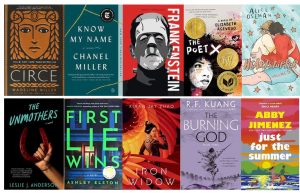“Sin is Sin” and “The Innocence of Muslims” are extremely different cases that came into the spotlight as a result of social media. What we see, however, is the public response to these issues is not appealing and that leads me to ask: why do we respond to “hate” with animosity? How about dialogue instead of intense radical Facebook posts and violent attacks?
Concordia is a place where we are prepped to “influence the affairs of the world” by being “thoughtful and informed men and women dedicated to the Christian life”. The response I saw in the social media to the “Sin is Sin” movement was not even close to this.
Instead of showing love and compassion, some Facebook comments expressed hate and intolerance.
While Cobbers are rumbling and struggling comprehending the ‘Sin is Sin” movement, the world is also struggling with a more intense situation: “The Innocence of Muslims” YouTube movie. These two situations, though entirely different, have two common themes: people standing for their religious values and a clear lack of dialogue between the parties involved.
Last week, an American-produced amateur movie sparked outrage in most Islamic countries. Assuming that the movie is so popular in America and is endorsed by the American government, protesters in Libya stormed the U.S. consulate building in Benghazi, killing three Americans including U.S. ambassador Christopher Stevens. Similar attacks happened in Pakistan where the U.S. Embassy was attacked.
What we see in these two instances is miscommunication and a lack of understanding of how to engage in dialogue. In both cases, the parties can easily resolve the misunderstanding through dialogue. The attacks on foreigners, specifically Americans, are based on the perception that the American government, through the freedom of speech, is protecting bogus individuals, which is not the case here as even the White House does not approve of the hateful movie.
Similarly, most Facebook posts about the ‘Sin is Sin” movement expressed hate and intolerance. How do we engage in dialogue in a situation like that?
Yes, I understand that Concordia has tried to foster interfaith dialogue, but to what extent are we having “dialogue?” Is our community creating a suitable environment for dialogue or is it about luring people to our opinions? Eboo Patel came at the right time. I hope his message of fostering dialogue reached many and we will all open up and be willing to engage in dialogue without showing distaste for the other beforehand.
Instead of hateful Facebook posts and comments, I expected all Cobbers who felt compelled to post about ‘Sin is Sin” to invite those involved to the table to discuss the matter. Or at least be compassionate and show love, which will be contrary to the “hate” that the other group was spreading.
Hatred cannot be corrected by hate. Cobbers, we are better than that. Let’s pursue dialogue in times of misunderstandings. That way, we will influence the affairs of the world for the better.




Be First to Comment